Host:
Dheeraj Pandey - Co-founder and CEO of DevRev, co-founder and former CEO of Nutanix
Guest:
Bipul Sinha - Co-founder and CEO of Rubrik, former venture capitalist at Lightspeed, and early investor in Nutanix
Summary
In this episode of The Effortless Podcast, Dheeraj Pandey sits down with Bipul Sinha, CEO and co-founder of Rubrik, for a deep dive into entrepreneurship, reinvention, and the changing landscape of cybersecurity and AI.
The conversation begins with Bipul and Dheeraj reminiscing about their early days at Oracle, where they learned firsthand how large companies can successfully disrupt themselves from within. Bipul shares his journey from engineering to venture capital, where he backed Nutanix, and eventually founding Rubrik—a company that has evolved from data backup to cybersecurity and AI-driven data resilience.
They explore how great companies challenge conventional wisdom, the importance of first-principles thinking, and why every startup must embrace non-consensus ideas to create something truly valuable. The episode also covers Rubrik’s next phase in cybersecurity, the role of AI in enterprise software, and how companies must avoid being trapped by past successes if they want to lead the future.
Key Takeaways
You create your circumstances, not the other way around. Bipul’s success stems from his belief that individuals shape the world around them—not the other way around.
Startups must have a controversial, non-consensus idea. If 70 percent of people already agree with your vision, it’s likely not disruptive enough.
Great companies go through phases of reinvention. Oracle, Nvidia, and Rubrik all succeeded by challenging their past assumptions and adapting to new paradigms.
Cybersecurity is shifting from prevention to resilience. Companies can no longer just focus on blocking attacks—they must also ensure that their core data remains secure and recoverable.
Being two miles ahead of the customer—not 200—is the key to adoption. The best companies innovate at a pace that customers can absorb.
America’s strength lies in relentless reinvention. Other economies, like Japan and Germany, must shift from managing decline to embracing transformation.
AI will make cybersecurity and enterprise software dramatically simpler. The next generation of enterprise tools must be as easy to use as social media platforms.
The U.S. federal government is a surprising source of innovation. Contrary to common belief, government agencies often adopt cutting-edge technology early.
History shows that a few visionary individuals can reshape industries. From Genghis Khan to Nvidia’s Jensen Huang, world-changing leaders have one thing in common: they reject the status quo.
In-Depth Insights
1. The Power of Non-Consensus Thinking
Bipul and Dheeraj discuss how Oracle repeatedly reinvented itself—from being a portable software company to launching Exadata, and then shifting to the cloud-first model. The lesson? Big shifts require going against conventional wisdom.
"If you are not misunderstood, you're not doing anything useful." – Bipul Sinha
This mindset shaped Bipul’s investment decisions at Blumberg Capital, where he was the first investor in Nutanix at a time when combining compute and storage in software was considered an impossible idea. The same thinking led him to found Rubrik, based on the belief that data and metadata should be unified—a concept that is now transforming cybersecurity.
2. The Evolution of Rubrik
Bipul sees great companies evolving in distinct phases, where each phase builds upon but also reinvents the previous one:
Backup & Recovery (2014-2019): Rubrik started as a next-generation backup solution, designed to simplify enterprise data management.
Cybersecurity (2019-2023): The company recognized that protecting data is as important as backing it up, shifting into cyber resilience.
AI & Data Intelligence (2024+): With Project Annapurna, Rubrik is now integrating AI-driven security and compliance to stay ahead of evolving threats.
This constant reinvention is what separates enduring companies from those that fade away.
3. America’s Competitive Edge: Relentless Change
Bipul argues that America’s dominance isn’t accidental—it comes from a cultural DNA of insurgency, immigration, and continuous reinvention.
"America is the original startup against the incumbency of Europe."
By contrast, economies like Japan and Germany risk stagnation unless they embrace transformation rather than manage decline.
4. AI’s Role in Cybersecurity and the Future of Data Protection
Traditional cybersecurity focused on securing infrastructure—perimeters, firewalls, and endpoints. But modern attacks target data itself.
Rubrik’s vision is to embed cybersecurity into data management, making security as effortless as using social media. AI will:
Automate threat detection
Minimize recovery time after breaches
Eliminate the need for deep technical expertise in cyber defense
5. Expanding Globally: When to Enter New Markets
Most startups wait until they reach Series C or later before expanding internationally, often focusing exclusively on the U.S. market in their early years. Rubrik challenged this assumption by establishing its EMEA headquarters right after launching its 1.0 product.
Bipul shares his reasoning:
Global markets adopt innovation at different speeds – Early adopters exist outside of Silicon Valley too. Europe and Asia often have sophisticated enterprise customers looking for cutting-edge solutions.
First-mover advantage in underpenetrated markets – Being first in a new market allows startups to shape customer expectations and industry standards.
Talent pools are global – Limiting hiring to the U.S. ignores top-tier technical and sales talent in international hubs. Rubrik built a world-class team in EMEA early on, giving it an edge in execution.
Enterprise sales cycles require long-term relationships – Penetrating a new market takes time, so starting early gives companies a multi-year runway before expecting revenue acceleration.
Bipul’s advice to founders: “If you want to be a global company, you need to act like one from day one.”
Host Biography
Dheeraj Pandey
Co-founder and CEO of DevRev, and former CEO of Nutanix. Dheeraj has led multiple tech ventures and is passionate about AI, design, and the future of product-led growth.
Guest Biography
Bipul Sinha
Co-founder and CEO of Rubrik, and former venture capitalist at Lightspeed and Blumberg. Bipul is an entrepreneur and investor with deep expertise in enterprise software, cybersecurity, and data management. Passionate about building enduring institutions and pioneering first-principles innovation.
Episode Breakdown
{00:00:00} Are you burdened by the past, or are you creating the future? Bipul Sinha opens with his philosophy on shaping circumstances rather than being shaped by them.
{00:00:35} The American ethos of relentless progress. Bipul discusses how the U.S. drives innovation by constantly reinventing itself.
{00:01:08} A 22-year friendship: How Dheeraj and Bipul met at Oracle. Their shared admiration for Larry Ellison and Oracle’s culture of reinvention.
{00:02:40} Hiring Dheeraj at Oracle during a hiring freeze. Bipul shares his first impression of Dheeraj and why he went the extra mile to bring him on board.
{00:04:00} Lessons from Oracle: Reinvention and risk-taking. How Oracle’s culture of breaking old models helped it thrive despite market shifts.
{00:06:00} Becoming lightweight: The transition from Solaris to Linux. Oracle’s bold move to embrace Linux as its primary development environment and how change fuels growth.
{00:09:00} Exadata and the shift from software to integrated systems. Larry Ellison’s vision of making software and hardware work seamlessly together.
{00:11:00} Non-consensus thinking and the foundation of great startups. Why every transformational company begins with an idea that most people disagree with.
{00:13:00} From engineer to venture capitalist. Bipul’s realization that his passion lay in business and his transition from Oracle to Wharton to VC.
{00:15:00} The controversial bet on Nutanix. Why Bipul believed in the idea of hyperconvergence despite skepticism from the investment community.
{00:19:00} The anatomy of a Black Swan startup. What makes an idea truly unique, and why relentless founders are the key to turning contrarian bets into successful companies.
{00:24:00} From VC to founder: The leap to Rubrik. Why Bipul left venture capital to build his own company and how he thought about its long-term impact.
{00:26:00} The three phases of Rubrik’s evolution. From backup and recovery to cybersecurity, and now AI-driven cyber resilience.
{00:30:00} First-principles thinking in security. How Rubrik approached cybersecurity differently by focusing on data rather than perimeter defenses.
{00:33:00} Understanding 'adhogami': The trap of past success. Bipul explains how companies become prisoners of their past achievements and why constant reinvention is necessary.
{00:36:00} AI and the miniaturization of enterprise software. Why AI-driven conversational interfaces will disrupt traditional SaaS.
{00:40:00} The convergence of cybersecurity and data protection. Why data needs to be self-protecting and how AI is accelerating this shift.
{00:45:00} Lessons from history: Genghis Khan, Bin Saud, and the power of strategic thinking. How visionary leaders challenge the status quo to create lasting impact.
{00:50:00} The future of global markets: Japan, Germany, and the UK. How different economies are adapting to the accelerating pace of technological change.
{00:55:00} Going global early: The Rubrik strategy. Why Rubrik set up its EMEA headquarters right after launching its first product.
{01:00:00} The U.S. federal government as a surprising source of innovation. From DARPA to cloud computing, how government agencies have historically driven technological breakthroughs.
{01:05:00} Final reflections on reinvention, leadership, and the relentless pursuit of change. Dheeraj and Bipul wrap up with insights on embracing uncertainty and pushing the boundaries of what’s possible.
References and Resources
Oracle and Larry Ellison’s Vision for Reinvention
Oracle has continuously evolved, from pioneering relational databases to becoming a major cloud and hardware provider. Larry Ellison’s leadership has been instrumental in driving change through acquisitions and technological shifts.
Learn more: Oracle’s Official Website
Nutanix and the Rise of Hyperconvergence
Nutanix disrupted the IT infrastructure market by merging compute and storage into software-defined infrastructure, enabling greater efficiency and flexibility in enterprise data centers.
Learn more: Nutanix’s Official Website
Rubrik: Cybersecurity and Data Protection Convergence
Rubrik started as a data backup and recovery company but has evolved into a leader in cyber resilience, protecting enterprise data from ransomware and security threats.
Learn more: Rubrik’s Official Website
The Concept of ‘Adhogami’
Bipul Sinha introduces ‘adhogami’ as the tendency to rely on past successes rather than embracing change. This idea aligns with behavioral psychology and business strategy principles.
Further reading on cognitive biases and business strategy:
The Role of Non-Consensus Thinking in Startups
Great startups challenge existing market assumptions and turn non-consensus ideas into mainstream successes. This principle is widely discussed in venture capital and business strategy.
Further reading:
Leadership Lessons from History: Genghis Khan, Bin Saud, and Strategic Thinking
Visionary leaders like Genghis Khan and Bin Saud transformed history by uniting diverse groups under a common mission. Their leadership strategies offer lessons for entrepreneurs and executives.
Books on historical leadership:
Genghis Khan and the Making of the Modern World by Jack Weatherford
The House of Saud: The Rise and Rule of the Most Powerful Dynasty in the Arab World by David Holden
The Infinite Mindset in Business
Simon Sinek’s concept of the “infinite mindset” emphasizes the importance of long-term thinking and continuous reinvention.
Learn more: The Infinite Game by Simon Sinek
Conclusion
The conversation with Bipul Sinha is a powerful reminder that adaptability, first-principles thinking, and a willingness to challenge conventional wisdom are at the heart of innovation. Whether it's Oracle reinventing itself, Nutanix disrupting IT infrastructure, or Rubrik redefining cybersecurity, the common thread is a relentless pursuit of change.
Bipul’s journey—from engineer to venture capitalist to founder—highlights the importance of taking control of one’s circumstances rather than being shaped by them. His insights into AI, cybersecurity, and the evolving enterprise landscape underscore how businesses must continuously reinvent themselves to stay ahead.
As AI reshapes industries, security moves closer to the data, and global markets become increasingly interconnected, the companies that succeed will be those that remain urdhogami—forward-looking, adaptable, and unafraid to question the status quo.
Stay tuned for more deep dives into the effortless world of innovation.

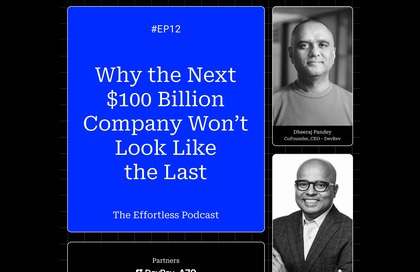

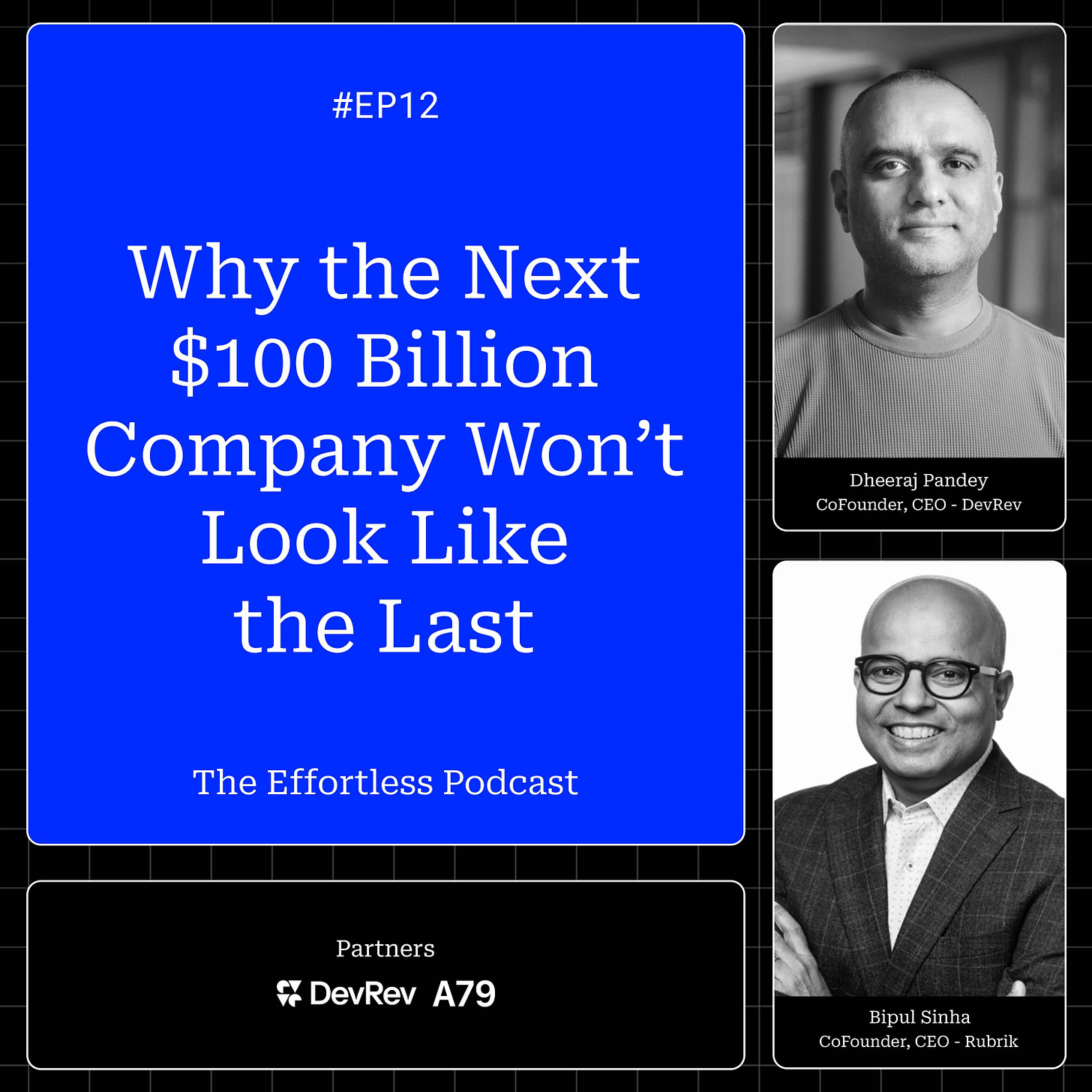



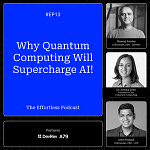
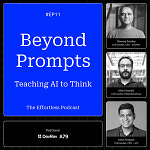
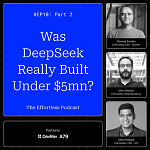
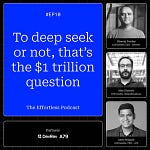

Share this post